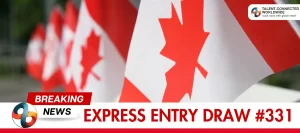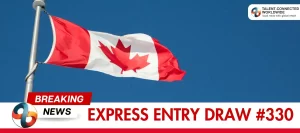
Can low grades cause Canada study permit refusal? Is this question roaming in your mind too? So, yes the Federal Court ruled that it is reasonable for an Immigration, Refugees and Citizenship Canada (IRCC) visa officer to refuse a study permit application if the applicant has low grades in “core courses” or “core subjects” related to their intended program of study in Canada from a previous program of study.
Must Visit: Manitoba, Ontario and PEI Invite 2,378 Candidates in PNP Draws!
What’s the Court Ruled?
The Court ruled that the visa officer was not required to explain why they determined someone’s grades were too low, despite the fact that the student was admitted to a Canadian post-secondary institution.
The implications of this judgment are that visa officers have broad power to refuse applications. In addition, if you are a student with lower grades, you should try to calm anxiety and present explanations as to how those grades will affect (or not affect) your capacity to successfully complete your proposed studies.
How to Apply for a Canada Study Permit?
Because of the country’s high level of education, chances for international students to work while studying, and the simpler transition to permanent residence, Canada is one of the world’s leading destinations for international students.
A student who is interested must meet the following requirements in order to be eligible to apply for a study permit:
- Obtain an acceptance letter from a selected learning institution.
- Explain that you have the financial support to cover the first year of tuition, living expenses, and return transportation to his or her native country.
- If you want to study in Montreal or elsewhere in Quebec, you must first obtain a Certificat d’acceptation du Quebec (Quebec Acceptance Certificate, or CAQ).
- Have a perfect track record. Applicants having a criminal record or who pose a security risk to Canada may be denied. IRCC may require a police clearance certificate from an applicant.
- Maintain your health. The IRCC may require an applicant to undergo a medical examination.
- Assure the immigration official that you will leave Canada at the end of the study permit’s allotted stay.
What is Student Direct Stream?
The Student Direct Stream (SDS) is a scheme aimed to make applying for a Canadian study permit for some overseas students faster and more efficient. The SDS is available to inhabitants of 14 countries:
1. Antigua and Barbuda
2. Brazil
3. China
4. Colombia
5. Costa Rica
6. India
7. Morocco
8. Pakistan
9. Peru
10. Philippines
11. Senegal
12. St. Vincent and the Grenadines
13. Trinidad and Tobago
14. Vietnam
What are the SDS eligibility requirements?
To apply for a study permit through SDS, you must meet specific requirements, such :
- Acceptance to a postsecondary designated learning institution (DLI)
- Tuition for your first year of study has been paid.
- CAD10,000 Guaranteed Investment Certificate (GIC)
- Minimum IELTS score of 6 with no band less than 6 or TEF (Test d’évaluation de français – French language proficiency test) score of at least 7 in each skill (reading, writing, speaking, and listening).
Documents Required for SDS
If you match the requirements, you must submit the following documents:
- Acceptance letter from a DLI
- Proof of tuition payment for your first year of study
- Proof of payment for a Guaranteed Investment Certificate (GIC) (certificate/letter of attestation)
- TRF or TEF scorecard for IELTS
- A copy of your medical examination from an authorized panel of doctors is required.
- Relevant academic background, including any academic documents
- CAQ requirements for students planning to study in Quebec
Read Now: What if I change my Express Entry profile after receiving my ITA?






